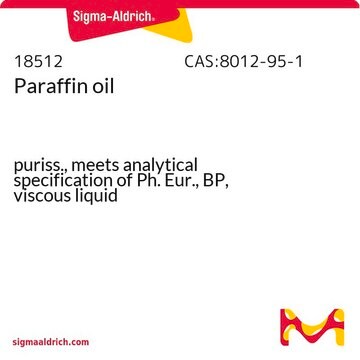P6617
Pristanic acid
≥97% (GC), ethanol solution
Synonym(s):
2,6,10,14-Tetramethylpentadecanoic acid
About This Item
Recommended Products
product name
Pristanic acid solution, mixture of isomers, ethanol solution, ≥97% (GC)
Quality Level
Assay
≥97% (GC)
form
ethanol solution
storage temp.
−20°C
SMILES string
CC(C)CCCC(C)CCCC(C)CCCC(C)C(O)=O
InChI
1S/C19H38O2/c1-15(2)9-6-10-16(3)11-7-12-17(4)13-8-14-18(5)19(20)21/h15-18H,6-14H2,1-5H3,(H,20,21)
InChI key
PAHGJZDQXIOYTH-UHFFFAOYSA-N
Biochem/physiol Actions
Signal Word
Danger
Hazard Statements
Precautionary Statements
Hazard Classifications
Eye Irrit. 2 - Flam. Liq. 2
Storage Class Code
3 - Flammable liquids
WGK
WGK 2
Flash Point(F)
55.4 °F
Flash Point(C)
13 °C
Personal Protective Equipment
Certificates of Analysis (COA)
Search for Certificates of Analysis (COA) by entering the products Lot/Batch Number. Lot and Batch Numbers can be found on a product’s label following the words ‘Lot’ or ‘Batch’.
Already Own This Product?
Find documentation for the products that you have recently purchased in the Document Library.
Customers Also Viewed
Our team of scientists has experience in all areas of research including Life Science, Material Science, Chemical Synthesis, Chromatography, Analytical and many others.
Contact Technical Service













